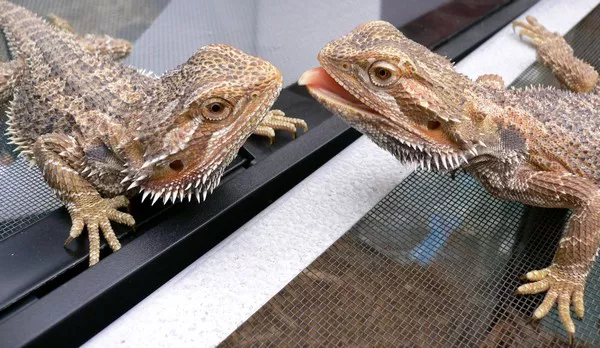Bearded dragons are popular reptile pets known for their docile nature, unique appearance, and entertaining personalities. However, like all pets, they can experience health issues, including a loss of appetite. If your bearded dragon is not eating, it can be a cause for concern and should be addressed promptly to prevent further health issues.
Here are some steps you can take if your bearded dragon is not eating:
- Check the temperature and lighting: Bearded dragons require specific temperatures and lighting to maintain their health and appetite. Make sure their enclosure is set up correctly with the proper temperature gradient and UV lighting. If the temperature is too low or the lighting is insufficient, it can affect their appetite and overall health.
- Offer a variety of foods: Bearded dragons require a varied diet to ensure they receive all the necessary nutrients. Offer a variety of insects, vegetables, and fruits to entice them to eat. Sometimes, a change in diet can help stimulate their appetite.
- Monitor their behavior: If your bearded dragon is not eating, it is important to monitor their behavior for any other signs of illness. Look for lethargy, weight loss, and changes in bowel movements. If you notice any other concerning symptoms, seek veterinary care immediately.
- Offer food at different times of the day: Bearded dragons are diurnal reptiles and tend to be most active during the day. Offer food at different times of the day to see if they are more inclined to eat during certain times.
- Address stress: Stress can also cause a loss of appetite in bearded dragons. Make sure their enclosure is large enough and provides ample hiding places to help them feel secure. Avoid loud noises or sudden movements around their enclosure.
- Offer live food: Some bearded dragons may be more inclined to eat live food, such as crickets or mealworms. Make sure the live food is properly gut-loaded and dusted with supplements before feeding to ensure they receive all the necessary nutrients.
- Seek veterinary care: If your bearded dragon continues to refuse food, it is important to seek veterinary care. Your veterinarian can perform a thorough examination to determine the underlying cause and provide appropriate treatment.
In conclusion, a loss of appetite in bearded dragons can be concerning but can often be addressed with proper care and attention. By following these steps, you can help stimulate your bearded dragon’s appetite and ensure they maintain their health and wellbeing.


























